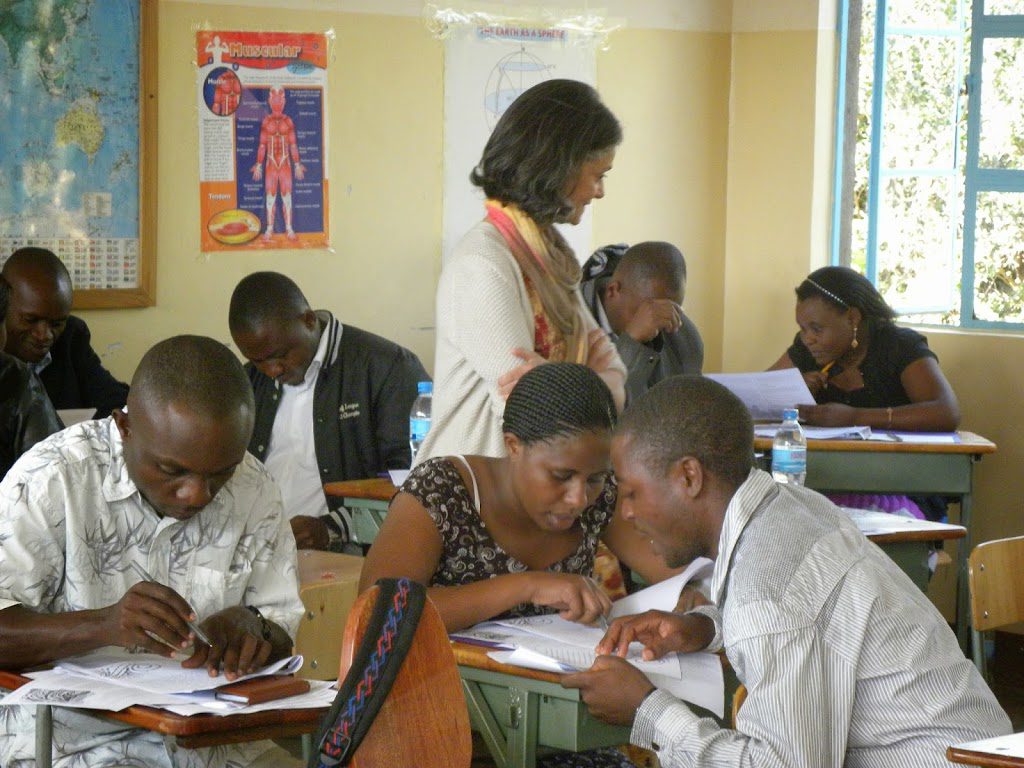Obstacles discourage even the best teachers in every geographic and social environment.  Good teaching is not easy – and good teaching is not recognized monetarily across continents.  Businessmen can make millions, but the teachers who developed their creative minds and critical thinking will never have real discretionary income.
Now consider Tanzania.  On top of low salary prospects, most Tanzanian teachers face classes of 40 to 80 in size (this is primary and secondary school – not University 100-level classes), few books, no Internet connection, no budget to fix a classroom and no supplies as basic as pens and paper.  Further, many parents and guardians simply still do not value formal education.  Girls are steered toward marriage. Boys, too often, are not steered toward anything.

It’s easy to preach about group work, effective discipline and active learning.  It’s much more difficult to apply these methods in a developing society’s school system.  Nevertheless, July’s Teacher’s Workshop tackled these issues. U.S. and Tanzanian educators discussed the HOW:  how to prepare a good lesson plan, howto ask higher level questions, how to use partnering and group work even in a large classroom, and how to approach discipline in a society that still uses corporal punishment.
MOST EXCITING! In special sessions, sponsored and Kilimahewa teens joined the teachers in a kind of laboratory for teaching math and science. U.S. teachers, fresh off their week of camp math, demonstrated – and let students demonstrate – how to attack basic math concepts in groups and at the board. The day was truly remarkable as students, often discouraged from trial and error and often not permitted to come to the blackboard, engaged with teachers in ways uncommon for Tanzania.  Local teachers then joined the collaboration, guiding the students in groups as the teens worked on questions they had brought for review.

First, Andy, one of our visiting U.S. Math teachers works through a problem…. Now it’s Mary’s turn… and it’s ok to make mistakes, and keep going.

True collaboration! Tanzanian and U.S. educators and their students. 
Productive – squaretable – discussions!
These pictures demonstrate how one day can be a positive force for all involved in order to  help teenagers struggling to learn in a rigid system.


